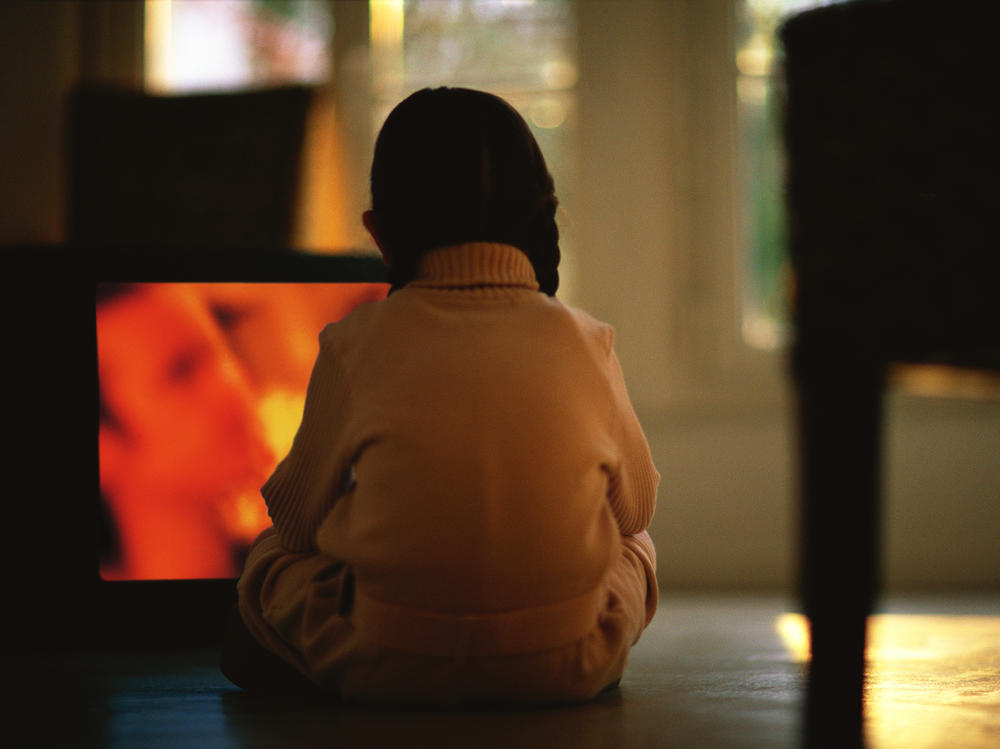Section Branding
Header Content
Scream time: Has your kid been frightened by a horror movie trailer?
Primary Content
It's that time of year when ads for horror movies and TV shows are everywhere, including at times when children might be watching.
When NPR put out a call for adults whose kids have gotten scared by horror movie trailers, one dad said he became a remote control "ninja" every time they watched sports. A mom said she bought tickets to see the car racing movie Gran Turismo with her 9-year-old. It's pretty tame, but the theater showed a trailer for the horror film Five Nights at Freddy's beforehand.
Even when you're at home, all it takes is a few seconds of gore to scare a child.
That's what happened to Kaari Pitkin. Recently she was watching the TV comedy Brooklyn Nine-Nine with her 11-year-old daughter when, she said, "all of a sudden a trailer for the new Exorcist came on."
It's a trailer that's too creepy for some adults.
"I quickly shut down the computer," Pitkin said. "But my daughter has a very big imagination and she doesn't like scary. And she went totally pale and kind of held me and was like, What was that? And of course, in the big picture, she's fine. But it just seemed like such an avoidable thing."
Is it avoidable? Not around Halloween. There's almost no way to opt out, said Betsy Bozdech, editorial director and head of ratings and reviews for Common Sense Media.
"You can watch anything, anytime, anywhere on any device. And so it's really hard to control who's watching it and when," she said.
Yes, there are ratings parents can look at ahead of time, but what's appropriate for kids is subjective. Both Gran Turismo and Five Nights at Freddy's are rated PG-13. Only one of them is intentionally scary.
Platforms also have parental controls that help adults filter what kids see. But good luck keeping up with technology.
"Parents constantly feel like they're falling behind on parental controls," said Bozdech. "They're not the same from service to service or device to device. Even when you can figure out where to go, sometimes you have to put in a code, sometimes you don't have to put in a code. Sometimes you...flip a switch and say, 'I want this to be safe.' But then your kid could just as easily flip that switch back. So it needs to be easier and it needs to be really straightforward."
While there are organizations such as Fairplay advocating for better practices around ads children see, this is a systemic problem with, so far, no good answers — though Common Sense Media encourages parents to watch with their kids. Not only can you hit pause, you can talk to them about what they're seeing.
"If they seem rattled by an ad...it's a great opportunity to jump in and explain that this is fantasy. It's entertainment. You know, it's not real," she said.
Bozdech knows co-viewing isn't always an option but, she says, until there's regulation, platforms can show just about whatever trailers they want.
This story was edited for audio and digital by Jennifer Vanasco.
Copyright 2023 NPR. To see more, visit https://www.npr.org.

